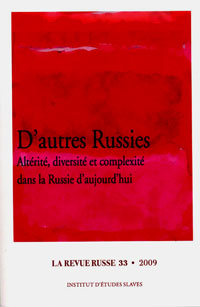
LA REVUE RUSSE 33
(Année 2009)
D’autres Russies
Altérité, diversité et complexité dans la Russie d’aujourd’hui
Consulter le sommaire en français
Première partie
Agir, interagir, ne pas agir…
Liberté russe et tolérance européenne, par Alexandre Podrabinek
Russian freedom and European tolerance
Culturally, Russia is, for its most important part, a European country. Politically, it is only partially European, and, psychologically, not European at all. Now, for the past eight years, its government has driven Russia away from Europe, from the European values and institutions. A quasi-Soviet regime has reappeared, as freedoms have been reduced. Contrary to stereotypes, the Russian population does appreciate freedom, but is not ready to pay very much for it. Furthermore, most of the opposition does not dare to be active, fearing that it would irritate the government. And the West is surprisingly tolerant for dictatorial and totalitarian regimes, and does not defend enough the principles it advocates.
Éthique et « RealPolitik », par Sergueï Kovalev
Ethics and « RealPolitik »
At the present time, an ethical catastrophe is happening in Russia, as the principles proclaimed in the Russian Constitution do not exist in real life, and everybody knows about it. Every Russian citizen knows, for example, that the results of the past elections were falsified and that the judicial system is not independent from political influences. Lying has therefore become some kind of a ritual, in which the majority of Russian society participates. Faced with this situation, the Western countries act very hypocritically. On the one hand, they keep repeating, as they have been since the end of World War 2, that human rights must be respected and that these can guarantee international security. But, on the other hand, these statements are comprised merely of beautiful words, while decisions are dictated by « Realpolitik ». And if this goes on, the world will be committing suicide.
Vers un patriotisme civique ? Les associations face aux injonctions de l’État russe, par Françoise Daucé
How to promote a civic patriotism ? Associations of defence of human rights and patriotic reference in Russia
Since the beginning of the 2000’s, the Russian State has put patriotism in the centre of its political construction. Patriotic references, neglected in the 1990’s, have gradually re-emerged in all fields of Russian society, including those sectors too that were most set against it. This is also the case for the associations for the defence of human rights, created during perestroika, to support universal human rights. Since the coming to power of Vladimir Putin, these associations have been suspected of anti-patriotism and have been threatened as such. To defend themselves against criticism, the defenders of human rights have tried to synthesise universal principles of human rights with patriotic considerations. Denouncing the chauvinistic and nationalistic patriotism, they promote a civic, even constitutional, patriotism, based specifically on the Russian Constitution of 1993. However, their concept, « patriotism of human rights » (pravozachtchitnij patriotizm), does not appear to receive any support from the State or from the majority of Russian society.
Une Russie xénophobe : les dérives de l’idée nationale dans la Russie postsoviétique, par Tatiana Marino-Konovalova
Russia and xenophobia : the national idea’s excesses in Post-Soviet Russia
Since some twenty years ago, Russia has faced an increasing wave of xenophobic violence. Those engaged in committing such violence represent only a tiny minority of the Russian population. Nevertheless polices and the judicial system have not managed to stop them. The government in fact has been inefficient in its attempt to produce a substantial and coherent program, which could pacify inter-ethnic hostilities. These hostilities are the result of badly managed immigration and also the difficulties that the Russians have faced in rebuilding their national identity after the collapse of the USSR.
Pluralisme et monopole religieux en Russie : le cas de l’Église orthodoxe, par Antoine Nivière
Pluralism and religious monopoly in today’s Russia : the case of the Russian Orthodox Church
In the 90s, the Russian Orthodox Church was confronted with religious pluralism that had appeared as a result of the liberal law of 1990 regarding the freedom of conscience. Schisms have occurred even within the Church. A more stringent policy followed in the wake of the law of 1997 which gave Orthodoxy special status. Even deeper changes followed after Putin’s arrival to the presidency. Since 2000, the persons in charge in the Patriarchy of Moscow have been more and more bound to political leaders. The Russian Orthodox Church plays a growing role in all domains of life and is particularly active in the diplomacy and the external relations of the State. Within the Church, everything that deviates from the official line is eliminated. These tendencies are likely to continue under the new Patriarch, who is supported by Medvedev and Putin and who, according to Russian observers, is going to transform the Russian Orthodox Church into a leading political institution.
La représentation des Noirs dans la culture russe postsoviétique,
par Peter Barta
The Representation of People of African Origin in Post-Soviet Russian Culture
The article offers a quick survey of the history of producing Blackness within Russian epistemological space. It proposes that racism in Russia is tied up with unsuccessful attempts at nation building and, specifically, the failure of producing a satisfactory identity narrative for educational/propagandistic purposes. Following the loss of Empire and the lapse of the monopoly of the official rhetoric of the Communist Party, Russian culture has probed the question of empire and of the space of the Russian « civiliser » and the African « pupil ». Tolstaya, Lipskerov, Prokhanov and Lukinskii in the printed and visual media offer their takes on the question and it is the purpose of this essay to analyse and contextualise these.
L’action de la Russie actuelle dans la vie des orthodoxes en France, par Olga de Beaulieu
Current Russia’s Policy towards Russian emigrants in France
Numerous Russians emigrated to France after the Revolution of 1917, and they had to adapt to a new environment, while keeping their specificities, in particular their religion. They or their descendants started travelling to the USSR from the 70s and Soviet citizens were able to meet their fellow countrymen living in foreign countries. The USSR at first, and then Russia, have tried to intervene, quite a few times, in the community of Russian immigrants in France. The official relations of the Russian State towards these immigrants have evolved from indifference to a very pronounced interest, which has steadily increased since the time Putin became president. This has resulted in profound disagreements within immigrant circles, particularly among the Orthodox believers.
Souverainisation versus régionalisation : l’État face à ses régions de l’Extrême-Orient russe durant la première décennie du xxie siècle, par Sabrina Vidalenc
Sovereignization vs. Regionalization ? The Russian State facing its Far Eastern regions during the first decade of the 21st century
This article focuses on Russian policy regarding its bordering regions in the Russian Far East during the first decade of the 21st century. The dynamics of regionalisation during the 1990s were perceived by the Russian state as activity undermining its authority in foreign policy and its control over foreign trade initiated in these regions. During the first decade of the 21st century, the Russian State has sought to reassert its monopoly and authority over regions and individuals trying to move away from the centre. A statist approach has been carried out on the federal level.
This paper will assess how Russian central power tries to manage its bordering areas and deal with cross-border activities. The Russian State intends to contain foreign economic influence from its Asian neighbours, in particular from China. It also tries to exert better control over local activities linked to the borders. The extent to which the Russian State is able to achieve these goals manifests itself as relevant matter to explore. Moreover, the study of these practices stresses the Federal power’s recurrent need to adapt to social and economic regional realities to ensure social consensus. Some interactions that occur between interested parties allow them to find quite an acceptable balance between geopolitical requirements and local socioeconomic needs. When the latter is manhandled, local stake holders mobilize themselves in order to find redress.
La petite entreprise face au plan de modernisation de l’économie russe : un oubli regrettable, par Dimitri Kisline
Small companies and the modernization plan of the Russian economy : a regrettable oversight
Small companies have reappeared in Russia after a law was adopted in 1988, but they have since been forgotten within the various plans of economic modernization : they never did in fact become a priority for the authorities. In the 90s, the Russian State preferred to take charge of macroeconomic problems. Since 2000, it has payed attention almost exclusively to the heavy industry, and it has produced important concentrated conglomerates. Nevertheless, President Medvedev has recently declared that he wants to develop the sector of the small enterprise in Russia. Will these changes take place ?
Boris Tchitchérine dans la Russie contemporaine, par Sylvie Martin
Boris Chicherin in present-day Russia
The present article deals with the « re-discovery » of Boris Chicherin (1848-1904) by researchers in present-day Russia. This new work by Russian historians on Chicherin exists in a broader context of interest in « liberalism ».
This essay provides insight into Chicherin’s philosophy of State in order to assess the link between Liberty and Liberalism in his political philosophy : reading Boris Chicherin in today’s Russia means reconsidering the role of the State and rehabilitating the concept of politics.
IIe partie
Dire. Essayer au moins.
La liberté de la presse n’est plus ce qu’elle était !, par Zoïa Svétova
The freedom of the press is no longer what it used to be.
The freedom of the press appeared in Russia under Gorbatchev and saw its flourishing when Eltsin was president. It has however deteriorated extensively since Vladimir Putin became Russia’s President in 2000. The mass media have again become what they used to be : tools for official propaganda. To obtain this goal, different means have been used : people or groups (GazProm, for example), close to the centres of power, have bought some media outlets ; the main editors are regularly summoned to the Kremlin, where politicians or civil servants of high rank explain to them, what they can write about and how. Journalists who do not respect the rules are accused of violating the law, especially the recent law regarding extremism. As a result and contrary to what took place in the 90’es and at the end of the 80’es, the Russian population does not show much interest in the press and nor does it trust it. A space for freedom persists nevertheless in Russia thanks to the Internet. But the political power apparently wants to control it more and more.
Samizdat et Internet, par Natalia Gorbanevskaïa
Samizdat and Internet
The term of samizdat is often used in the contemporary Russian language, and not always accurately. What is samizdat ? Several definitions put the emphasis on the prohibited character of the texts broadcast, the mode of broadcasting (by the readers and without the control of the author) them, or even on the social importance of such texts. Therefore the Internet shares many common features with samizdat, since the latter also allows texts to be broadcast by their authors without the agreement of the censor. That is why some people think that the Internet plays the same role in contemporary Russia as samizdat used to in the USSR. The Livejournal, a specific space on the net, makes it possible to gather uncensored information, to organise debates and to circulate petitions for the defence of people attacked by the authorities. Since it presents the truth in the face of the lies, it is indeed very close to the Soviet samizdat. As it happens, the Internet is more and more used in Russia even as the freedom of the media has been on the decrease for the past ten years. But the Russian authorities are demonstrating an increasing desire to control the Internet as well in light of the fact that the existence of the net places obstacles in the way of re-sovietizating Russian society.
L’enseignement supérieur en Russie aujourd’hui, par Armelle Groppo
The higher education system in today’s Russia
Unlike the Soviet political and economic systems, the country’s higher education system survived the fall of Communism, although it went through a very deep crisis, one whose impact is still being felt. This article aims to describe and explain the Russian higher education system’s current complexity and to link its evolution with the country’s traditional and contemporary political practices.
The survival of the education system is due to multiple factors – among them its resourcefulness and capacity to adapt, the increasing number of services offered by an endlessly rising number of establishments, the development of a private sector both opposed to and within the traditional public one. 2005 saw the publication of a « national plan » for higher education as part of the State revival scheme launched by President Putin. The measures were mainly of a financial nature, reflecting the rules of the new public management whose underlying idea is that as stronger universities emerge, weaker ones would either have to disappear or they would have to provide their own funding. Other measures, of a purely administrative nature, were issued with the same objective.
The main aim of all these measures is the creation of world-class universities. This is a key element in the foreign policy of countries considered to be « Great Powers », an exclusive club which Russia wishes to be allowed to join. Becoming an attractive country for higher education, important as it may be, is a difficult objective to achieve with Russia’s own resources. Indeed, Russia has to face various obstacles – a deep-rooted demographic crisis which diminishes its human resources, the global economic crisis (coming at a time when almost 60% of students must pay tuition fees), the need to re-invigorate the teaching profession and recruit new professors in order to modernise teaching and research, and finally, general corruption and increasing and widespread xenophobia.
President Medvedev has recently increased considerably the Federal State’s contribution to the funding of universities not only with the idea of creating a small number of world-class higher educational institutions but also in the hope of reducing the number of students having to pay tuition fees. This is to be considered as a real turning point in the politics of the Russian State. But supplying funding will hardly overcome the above-mentioned obstacles, more particularly corruption and xenophobia. Indeed, xenophobia is a general problem in Russia, not only an academic one, and corruption is rooted in the understanding of power inherited from ancient Russia and the Soviet era. The problem for the Russian State is therefore not only how profoundly to reform the universities, but also – and primarily – how to depart from ancient traditions effectively to modernise both Russian society and its conception of power.
La prose de Minaev : phénomène d’altérité « dirigée », par Anatoly Tokmakov
Minaev’s prose : the phenomenon of « directed » otherness
Minaev’s prose is a literature of manipulation. The author seems to dissect the world of glamour and success to dispute mass-culture, to denounce the new rich, the jet set – all those whom he calls « the soulless ». The writer claims to offer the diary of a new Pechorin, a present-day Byronic hero. The story, however, is not meant to show a character but to send the readers an ideological message which differs little from official discourse. Aiming at commercial success, many of Minaev’s novels are bestsellers – the author tries to represent a false « other » comprised of the current power’s admirers, who are presented as a minority. The support given to the writer by the Kremlin-directed media and the conjunction oMinaev’s thesis with the main points of propaganda seem to suggest that his prose might be part of a large-scale ideological project.
De l’ésotérisme politique ? Les symboles de l’Hyperborée dans la nouvelle formation discursive russe, par Sergeï Tchougounnikov
Political esotericism ? Symbols of Hyperborea in the new Russian discourse
During the last decade, a number of popular works have been published in Russia which treat the myth of the northern continent of Hyperborea. They belong to different contexts and discourses that aim to revise Russia’s past by attributing to the Russian people a mythic origin, an original national historiography and an attempt at a new identity. As these writings are part of a popular undercurrent in contemporary Russia, the aim of this article will be first to make a synchronic, typological analysis of the discourse found in the above-mentioned texts, and, second, to make a diachronic, comparative analysis of parallel currents in the history of Western thought.
Famille et altérité dans l’œuvre de Ludmila Oulitskaïa, par Karine Alaverdian
Family and otherness in L. Ulitskaya’s works
Ludmila Ulitskaya is mainly concerned with the family and the other traditional Russian theme of « the little men ». Her favourite heroes, at first sight, seem weak and insignificant, and share a sense of otherness. This otherness, including their mental or physical handicap, is a source of internal freedom and of contempt for social conventions. In this article we will focus on the theme of the fear of otherness in the short stories of this Jewish writer. We reach the conclusion that the racism the writer experienced during her childhood in Stalin’s Russia is still present today and that the situation of handicapped people is as difficult as ever. Unlike other writers of her period who are interested in the Jewish issue, Ulitskaya doesn’t regard racism and anti-Semitism as genetically inherent characteristics of the Russian people, but as features, which depend on education received at home and in school.
Le moi et ses simulacres. Éclatements identitaires dans la nouvelle dramaturgie russe, par Marie-Christine Autant-Mathieu
The self and its simulacra : identity breaks in new Russian drama writing
The article studies the plays written by Evgeny Grichkovets and the Presniakov brothers. Each of these authors questions, in his own way, the identity of young people living in Russian society which has rejected the communist values according to which their parents were raised. These young people have to face, at the beginning of the 21st century, a world invaded by violence, wars and terrorism. The huge success met by Grichkovets is due to a complete break with the current rules of dramatic representation. Grichkovets has declared over and over that he is no playwright, actor or director. He is « himself », he places his self in front of the public for an exchange. The Presniakov brothers, unlike Grichkovets, write plays dealing with existential questions in a grotesque, fantastic and caustic way. Their nightmarish stories, told in episodes as TV serials, present totally insensitive characters. Sensitive and emotional or, on the contrary, inertia-driven and devoid of any sensibility, the characters of the new Russian drama break radically with the cult of a social and moral order, the will and reason endorsed by Soviet heroes.
Le discours publicitaire automobile comme révélateur de la diversité russe, par Elena Ivanova-Glédel
The discourse in automobile ads as a revelation of Russian otherness
The discourse of advertising, following the example of political discourse, likes to refer to another Russia. Our corpus, made up of 89 automobile ads drawn from Kommersant-Vlast (2002-2008), all offer a social status to the would-be buyer. The recurrence of the idea of being « exceptional » leads us to resort to two types of the isotopy theory (Rastier : 1987, 1989) : 1) the car’s technical qualities and 2) the would-be buyer’s social status. It was found that the second category is more important than the first one. It remains to be determined whether the prioritisation of the car or its buyer in our corpus is a temporary rhetorical mode or a deeply engrained tendency of the Russian market and society.
La représentation sémantique du mot inostranec dans les discours médiatiques russes, par Vladimir Beliakov
The semantic representation of the word « inostranec » in Russian media discourse
This article examines the stereotype associated with the word « inostranec » . The stereotype is understood as an image of the relevant object, shaped in the social experiential framework and encoded in a language which is accessible via lexis and phraseology and inherent in the world knowledge associated with this word in a particular community. The analysis of the lexical-semantic functioning of the word « inostranec » in contemporary Russian media discourse allows us to establish two profiles of this stereotype : the dominant profile – « a foreigner is an enemy, an aggressor » and the minor profile – « a foreigner is a partner ».
Quelques réflexions sur la pègre et le pouvoir dans le pays des Soviets. De Staline à Poutine, par Galia Ackerman
Some reflections on the criminal world and the political power in the country of the Soviets, from Stalin to Putin
The paper considers different aspects of a complicated relationship between the communist power and the criminal world. Why did Stalin’s regime use criminals to control political prisoners in the concentration camps ? Why did simple citizens and the intelligentsia have so much sympathy for criminals during most of the Soviet period ? How did the criminal world integrate the post-Soviet business elite ? What is its influence on the moral values of the new Russian society ?
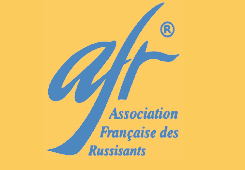
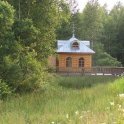
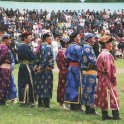

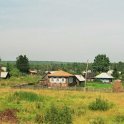
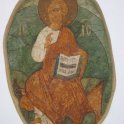
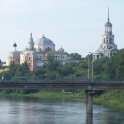

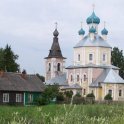

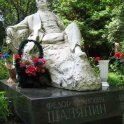
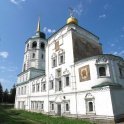

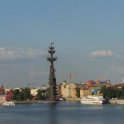
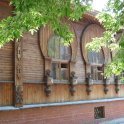
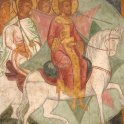
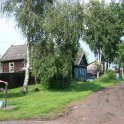

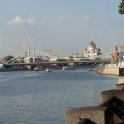

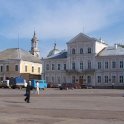
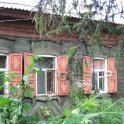
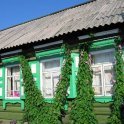
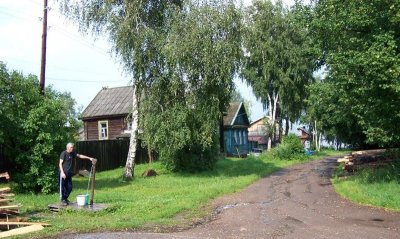
 Sommaire
Sommaire